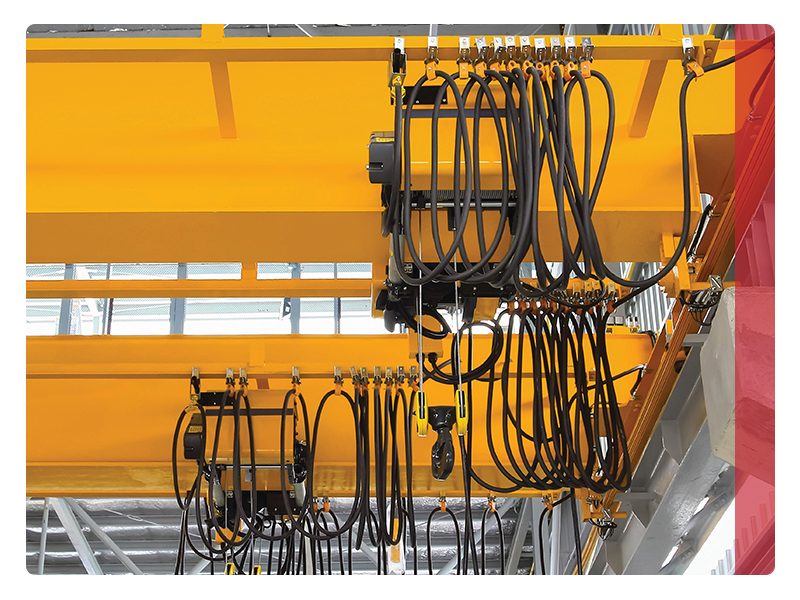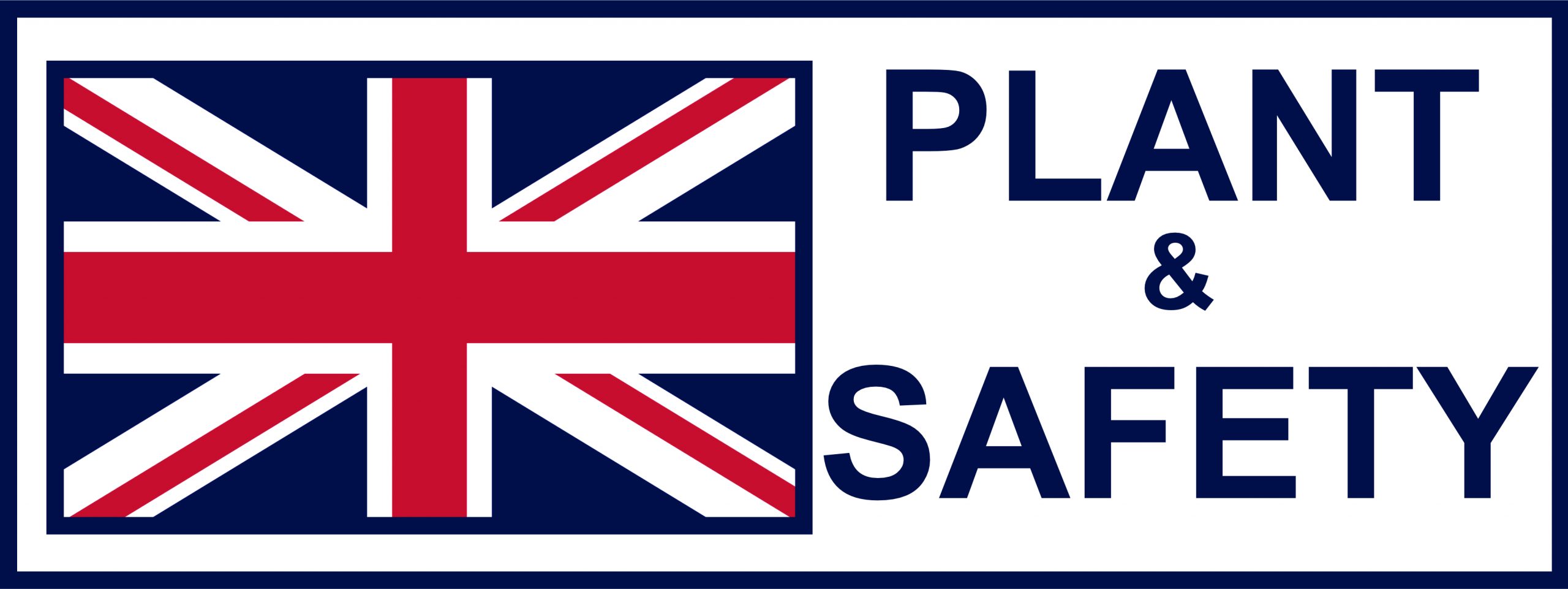EVERYTHING YOU NEED TO KNOW ABOUT LOLER
What is LOLER and what does LOLER stand for?
Are you trying to understand what LOLER is and what LOLER stands for? Then simply read the post below to find out more about LOLER and Lifting Equipment.
What is LOLER?
LOLER 1998 is the regulation enforced by the Health & Safety Executive’s (HSE) which covers lifting equipment and lifting operations.
LOLER places duties on people and companies who own, operate or have control over lifting equipment. This includes all businesses and organisations whose employees use lifting equipment, whether owned by them or not. In most cases, lifting equipment is also work equipment so the Provision and Use of Work Equipment Regulations (PUWER) will also apply (including inspection and maintenance). All lifting operations involving lifting equipment must be properly planned by a competent person, appropriately supervised and carried out in a safe manner.
LOLER also requires that all equipment used for lifting is fit for purpose, appropriate for the task, suitably marked and, in many cases, subject to statutory periodic ‘thorough examination’. Records must be kept of all thorough examinations and any defects found must be reported to both the person responsible for the equipment and the relevant enforcing authority.
What does LOLER stand for?
LOLER stands for Lifting Operations and Lifting Equipment Regulations, which falls under the Health and Safety at Work Act 1974, and is enforced by the Health & Safety Executive (HSE). It is applicable to people and companies who own, operate or have control over lifting equipment.
What is the purpose of LOLER?
Lifting operations require specialist equipment to ensure that work is undertaken in a safe and efficient manner. LOLER is in place to check that lifting equipment is fit for purpose, compliant, and safe to use in order to ensure the safety of its operators.
LOLER regulations require that all lifting operations must be properly planned by a ‘competent person’, as well as appropriately supervised and carried out in a safe manner. This means that workers must be properly trained to handle lifting equipment, sites should be properly inspected and work must be planned thoroughly by somebody with appropriate experience and knowledge before any work takes place.
As HSE advises: “If your business or organisation undertakes lifting operations or is involved in providing lifting equipment for others to use, you must manage and control the risks to avoid any injury or damage”.
This requires lifting operations to be:
• Planned properly
• Undertaken by people who are sufficiently competent
• Supervised appropriately
• Carried out in a safe manner.
In addition to the above, LOLER also requires lifting equipment to be regularly inspected and suitably marked to indicate that it is “fit for purpose, appropriate for the task, suitably marked and, in many cases, subject to statutory periodic ‘thorough examination‘.
What is a 'Thorough Examination'?
According to the HSE, a thorough examination is a systematic and detailed examination of the lifting
equipment by a competent person to detect any defects that are, or might become, dangerous.
The competent person will determine the scope of the thorough examination and they may use a number of sources to help them do this, such as industry guidance.
What is a 'Competent Person'?
Under LOLER, a competent person is defined as having “such appropriate practical and theoretical knowledge and experience of the lifting equipment to be thoroughly examined as will enable them to detect defects or weaknesses and to assess their importance in relation to the safety and continued use of the lifting equipment”.
According to the HSE, a competent person should:
• Should not be the same person who performs routine maintenance as they
would be responsible for assessing their own work;
• Should be sufficiently independent and impartial to make objective decisions;
Who has obligations and responsibilities under LOLER?
According to the HSE’s INDG290 Lifting equipment at work, if you are an “employer or self-employed person providing lifting equipment for use at work, or you have control of the use of lifting equipment, then LOLER Regulations will apply to you”.
Persons or companies falling under this description are classed as ‘duty holders’ under LOLER and must make sure that when lifting equipment is used, the requirements of LOLER are achieved. These requirements include:
• LOLER Inspection and Thorough Examination: According to the HSE’s INDG422 Thorough examination of lifting equipment guidance documents, both inspection and thorough examinations are fundamental key requirements of LOLER.
• Testing of Lifting Equipment: All lifting equipment and accessories must also be sufficiently strong, stable and suitable for the proposed task, which often requires testing services.
• Marking of Lifting Equipment: LOLER also requires equipment to be visibly marked with any information that should be taken into account for its safe use. This includes factors such as safe working loads and usage instructions.
• Planning and supervision: Under LOLER, duty holders must ensure that all lifting operations are planned, supervised and carried out safely by people who are deemed competent.
• Reporting: It’s essential to have inspection reports following a thorough examination or inspection of any lifting equipment
As the duty holder, you must also ensure that you keep relevant information relating to your lifting equipment, including thorough examination and inspection reports, LOLER test certificates, documentation, and records of EC Declarations of Conformity etc.
How to be compliant with LOLER Regulations?
To be compliant with LOLER, you must ensure the various requirements summarised above are met within your business. This means ensuring that all equipment undergoes regular inspection and thorough examination by a competent person who is impartial and independent.
A competent person is required to undertake a regular ‘thorough examination’ of all lifting equipment:
• Before it is first used, if not EC Declaration is available
• Immediately after the repair or replacement of an essential component
• Whenever it is removed and refitted to the original chassis
• Within 12 months of its last inspection (lifting accessories are usually 6 monthly)
• A duty holder must ensure that all records of thorough examinations (as well as any other inspection or testing services) are readily available to inspectors from the relevant authority at all times, such as the HSE.
It’s important, therefore, to ensure an inspection and thorough examination is undertaken regularly and records are kept in accordance with the HSE guidance. Using an independent and impartial engineering inspection supplier can help you achieve compliance whilst minimising disruption to your business.
WHAT WE OFFER
Contact us today for support with LOLER compliance requirements
Plant and Safety Ltd are a national provider for LOLER inspection and thorough examination services for all types of lifting equipment and lifting accessories.
Visit our LOLER page to learn more about our Lifting equipment inspection and testing services, or contact us using the form below.

How can we help?
To learn more or if you have any questions, please feel free to call or email us. You can also request a call back using our online form.
T: 0330 113 7920
E: sales@plantandsafety.co.uk
Useful Links
